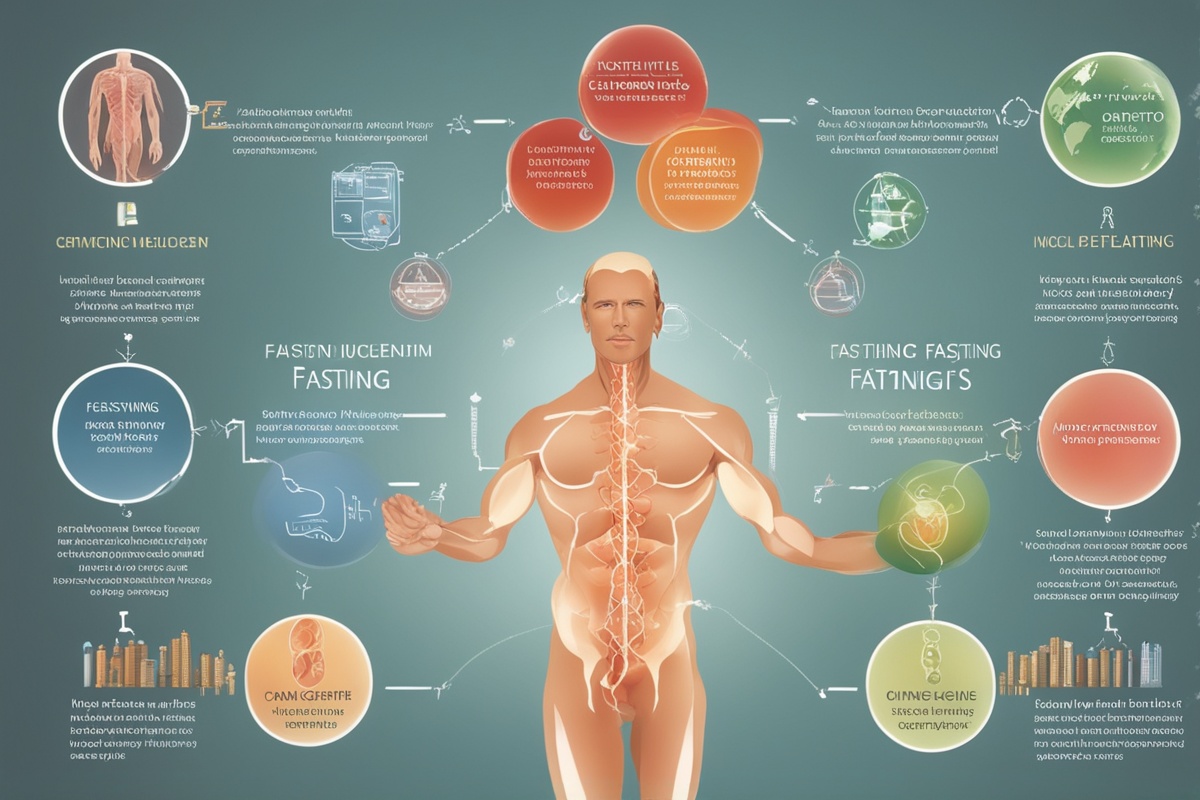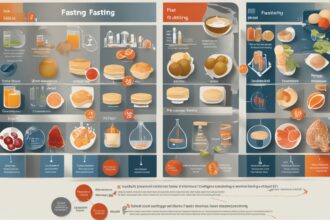Have you ever wondered why some people seem to thrive on intermittent fasting while others struggle with hunger pangs and low energy? The answer might lie in your genes. Health fasting—a practice celebrated for its potential benefits like weight loss, improved metabolism, and even longevity—doesn’t work the same way for everyone. As science digs deeper into the intersection of fasting and genetics, it’s becoming clear that our unique DNA plays a significant role in how our bodies respond to fasting protocols. In this post, we’ll explore how genetics influences the outcomes of fasting for health, break down the science behind it, and offer practical tips to tailor your fasting journey to your genetic makeup. Let’s dive into this fascinating topic and uncover how your genes might be the key to unlocking the full potential of fasting.
What Is Health Fasting, and Why Does It Matter?
When we talk about health fasting, we’re referring to intentional periods of reduced or no food intake with the goal of improving physical and mental well-being. Popular methods include intermittent fasting (like the 16:8 method, where you fast for 16 hours and eat during an 8-hour window), prolonged fasting (24–72 hours), and time-restricted eating. Research has linked fasting to benefits such as better blood sugar control, reduced inflammation, and enhanced cellular repair through a process called autophagy (Walker et al., 2017). But here’s the catch: not everyone experiences these benefits to the same degree. Some individuals report incredible results with fasting for wellness, while others feel sluggish or see no change. This variability often comes down to genetic factors that influence metabolism, hunger hormones, and even how our cells respond to nutrient deprivation. Understanding this connection can help you optimize your approach to fasting and health.
How Genetics Shape Your Response to Fasting
Genetics is the blueprint of who we are, dictating everything from eye color to how efficiently we burn fat. When it comes to health fasting, certain genes play a starring role in determining whether fasting will be a breeze or a battle. For instance, variations in the MC4R gene, which regulates appetite and energy expenditure, can influence how hungry you feel during a fast (Loos et al., 2008). People with specific variants might experience intense cravings, making fasting for health more challenging. Similarly, genes like PPARGC1A, which are tied to mitochondrial function and fat metabolism, can affect how well your body switches to burning fat for fuel during fasting (Lin et al., 2005). If your genetic profile isn’t optimized for fat-burning, you might feel more fatigued during fasting periods. These examples show that while fasting benefits are widely touted, your DNA can either amplify or hinder those effects.
Key Genetic Factors in Fasting for Wellness
Let’s break down some specific genetic factors that impact how your body handles health fasting. These insights can help you understand why your fasting experience might differ from someone else’s and guide you toward a more personalized approach.
- Hunger and Satiety Genes: Genes like LEP (leptin) and GHSR (ghrelin receptor) control hunger and fullness signals. Variations here can make you more prone to overeating or feeling unsatisfied during fasting windows (Klok et al., 2007).
- Metabolic Rate Genes: The FTO gene, often called the “fat gene,” influences your baseline metabolic rate and fat storage. Certain variants can slow metabolism, making weight loss through fasting harder (Frayling et al., 2007).
- Insulin Sensitivity Genes: Genes such as TCF7L2 affect how your body processes glucose. Poor insulin sensitivity due to genetic predisposition might reduce the blood sugar benefits of fasting (Grant et al., 2006).
- Stress Response Genes: Fasting is a stressor on the body, and genes like CRH (corticotropin-releasing hormone) can dictate how well you cope with this stress, impacting mood and energy levels during a fast.
Can Genetic Testing Help Optimize Fasting Benefits?
With the rise of at-home genetic testing kits, more people are curious about how their DNA can inform lifestyle choices like health fasting. Companies like 23andMe or AncestryDNA provide insights into traits related to metabolism and appetite, though they don’t specifically focus on fasting. More specialized services, such as those offered by nutrigenomics companies, analyze genes tied to nutrient metabolism and can offer personalized recommendations for fasting protocols. For example, if your genetic report shows a slower fat-burning capacity, you might benefit from shorter fasting windows to avoid energy crashes. While genetic testing isn’t a magic bullet—and should always be interpreted with the help of a healthcare professional—it can provide a starting point for tailoring your fasting and health journey (Mutch et al., 2005). Keep in mind that lifestyle, environment, and habits also play a huge role alongside genetics.
Practical Tips for Personalizing Your Fasting Journey
Whether or not you’ve done genetic testing, there are actionable ways to adapt health fasting to suit your body’s unique needs. Since we can’t change our DNA, the goal is to experiment and listen to your body’s signals while incorporating science-backed strategies. Here are some tips to help you maximize the benefits of fasting for wellness, regardless of your genetic predispositions.
- Start Slow: If you suspect fasting might be tough due to hunger-prone genetics, begin with a gentle approach like 12:12 (12 hours fasting, 12 hours eating) before progressing to stricter regimens.
- Monitor Energy Levels: Pay attention to how you feel during fasting windows. If fatigue sets in, your metabolism genes might need shorter fasts or more nutrient-dense meals during eating periods.
- Hydrate and Balance electrolytes: Genetic differences in stress response can amplify dehydration effects during fasting. Drink plenty of water and consider adding a pinch of salt to maintain balance.
- Focus on Nutrient Timing: If insulin sensitivity is a concern, prioritize protein and healthy fats at the start of your eating window to stabilize blood sugar.
- Consult a Professional: Work with a dietitian or doctor, especially if you’ve done genetic testing, to create a fasting plan that aligns with your health goals and DNA profile.
The Future of Fasting and Genetic Research
The science of fasting and genetics is still evolving, but the future looks promising. Researchers are working to uncover more specific gene-diet interactions that could revolutionize how we approach health fasting. Imagine a world where a simple DNA test could tell you the exact fasting schedule for optimal weight loss or disease prevention. Studies are already exploring how epigenetics—changes in gene expression due to lifestyle—might allow us to “hack” our genetic predispositions through fasting (Feil & Fraga, 2012). While we’re not there yet, staying informed about these advancements can help you adapt your fasting for health as new discoveries emerge. For now, the focus remains on personalization, trial and error, and combining genetic insights with practical lifestyle adjustments.
As we’ve seen, the connection between fasting and genetics is a game-changer for anyone looking to harness the power of health fasting. Your DNA influences how your body responds to fasting, from hunger levels to fat-burning efficiency, and understanding these factors can help you craft a more effective and sustainable approach. While genetic testing offers exciting possibilities, you don’t need a lab report to start experimenting with fasting for wellness. By starting slow, listening to your body, and using the tips we’ve shared, you can find a fasting rhythm that works for you—genes and all. Remember, fasting isn’t a one-size-fits-all solution, but with a little patience and personalization, it can be a powerful tool for better health. What’s your experience with fasting? Drop a comment below—I’d love to hear how it’s working for you!
References
- Feil, R., & Fraga, M. F. (2012). Epigenetics and the environment: Emerging patterns and implications. Nature Reviews Genetics, 13(2), 97–109.
- Frayling, T. M., et al. (2007). A common variant in the FTO gene is associated with body mass index and predisposes to childhood and adult obesity. Science, 316(5826), 889–894.
- Grant, S. F., et al. (2006). Variant of transcription factor 7-like 2 (TCF7L2) gene confers risk of type 2 diabetes. Nature Genetics, 38(3), 320–323.
- Klok, M. D., Jakobsdottir, S., & Drent, M. L. (2007). The role of leptin and ghrelin in the regulation of food intake and body weight in humans: A review. Obesity Reviews, 8(1), 21–34.
- Lin, J., Handschin, C., & Spiegelman, B. M. (2005). Metabolic control through the PGC-1 family of transcription coactivators. Cell Metabolism, 1(6), 361–370.
- Loos, R. J., et al. (2008). Common variants near MC4R are associated with fat mass, weight and risk of obesity. Nature Genetics, 40(6), 768–775.






